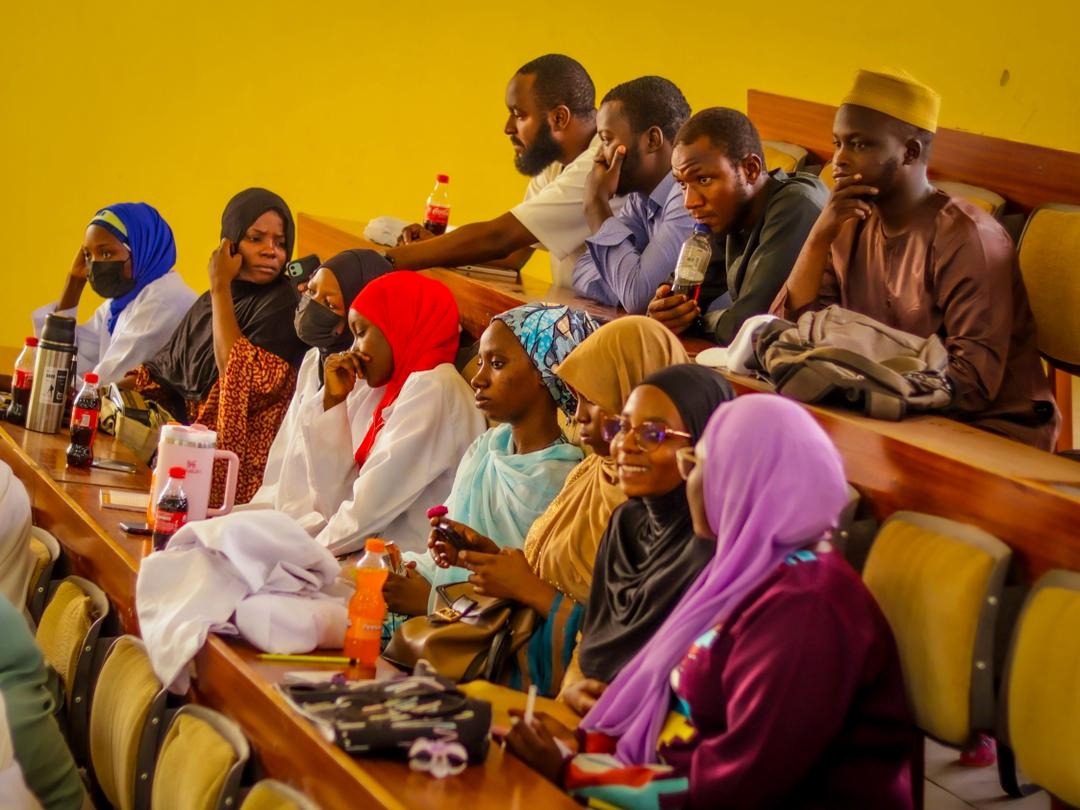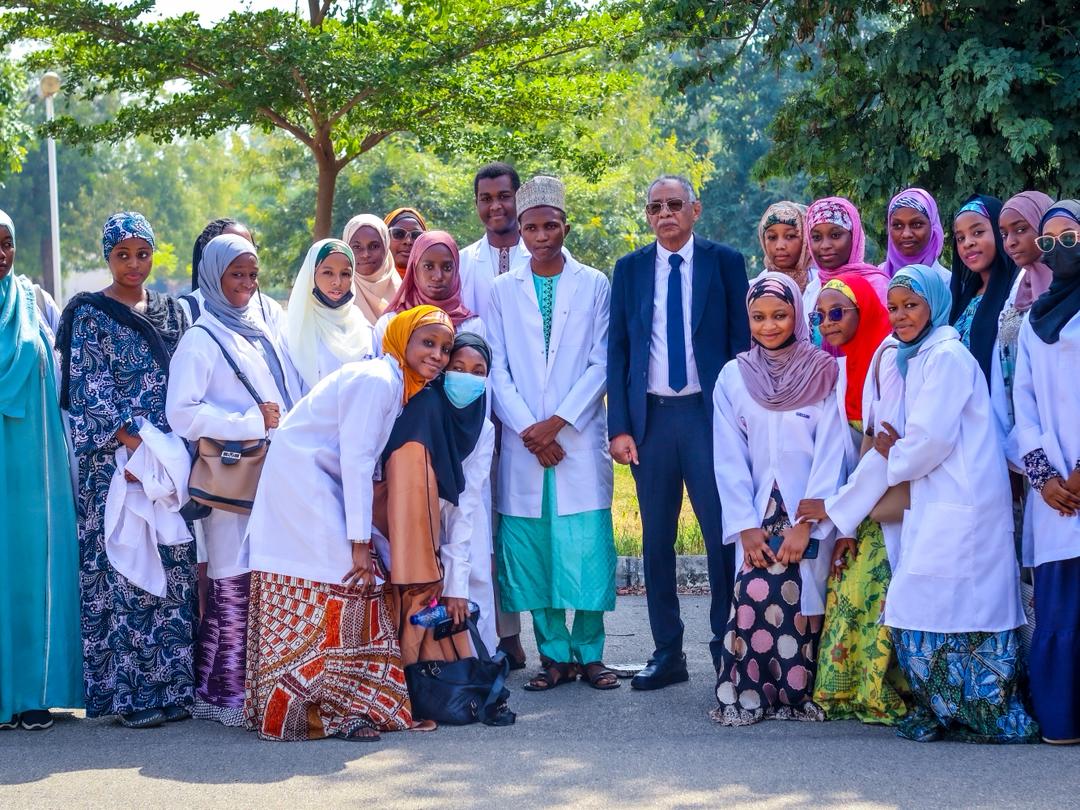 Education
Education
Bayero University Kano (BUK) has deep roots in the evolution of higher education in Northern Nigeria. The institution’s precursor began as Ahmadu Bello College in January 1960, located at the School for Arabic Studies (SAS) in the old city of Kano. When Ahmadu Bello University (ABU) was founded in Zaria in 1962, the college in Kano was renamed Abdullahi Bayero College in honour of the Emir of Kano, Alhaji Abdullahi Bayero.
In 1964 it moved to a temporary site at the old Kano Airport Hotel and admitted its first cohort of ten undergraduates for a BA programme affiliated with ABU. Over time, the institution grew. Eventually, by 1977 it attained full university status and became Bayero University.
This historical trajectory matters: the university’s roots in teacher training, Arabic and Islamic studies, Hausa language and general arts give it a distinctive cultural footprint in the region. Today that legacy informs its identity as a comprehensive university offering a wide range of programmes across the sciences, social sciences, health sciences, engineering and more.
---
Mission, Vision and Core Values
BUK presents its vision as: “To lead in research and education in Africa.” Its mission is to provide world-class academic and professional training, community service, and conduct research for societal advancement.
The university also highlights a set of core values including: commitment, competence, teamwork, self-motivation, integrity, honesty, loyalty, sincerity, professional service, client (student, government, stakeholder) satisfaction, gender consciousness and sensitivity, due process, accountability, transparency, innovativeness and positive change, staff empowerment, and good corporate governance.
These values reinforce that BUK seeks not merely to be a place of instruction, but a centre of culture and ethics, anchored in regional history yet aiming for global standards.
---
Academic Structure and Programmes
BUK is a full-fledged, multi-faculty institution with a broad academic portfolio. According to the university’s website and related sources, it hosts dozens of faculties and colleges.
Some major faculties/colleges include:
Arts & Islamic Studies; Education; Law; Engineering; Agriculture; Earth & Environmental Sciences; Computer Science & Information Technology; Social Sciences; Management Sciences; Physical Sciences; Life Sciences; Clinical Sciences/Basic Medical Sciences; Allied Health Sciences; Dentistry.
The College of Health Sciences includes Faculties of Allied Health Sciences, Basic Medical Sciences, Clinical Sciences and Dentistry.
The College of Natural & Pharmaceutical Sciences comprises Faculties of Life Sciences, Pharmaceutical Sciences and Physical Sciences.
The programme range is extensive. Undergraduate degrees across arts, sciences, engineering, medical and allied disciplines; postgraduate master’s and PhD programmes; diploma and remedial options for specific career paths.
For example: the Faculty of Engineering reports six departments offering ten programmes (Agricultural & Biosystems Engineering; Automotive Engineering; Civil; Chemical; Computer; Electrical; Mechanical; Mechatronics; Telecommunication) with full accreditation (except the newest) by the relevant professional bodies.
This diversity means for a student like you—who is learning web development and might later venture into computing or allied fields—BUK offers potential onward pathways and multidisciplinary exposure.
---
Research, Innovation & Institutional Impact
BUK emphasises research and knowledge transfer. From its mission and handbook one sees goals like “respond to needs, meet aspirations, lead in research and innovation, achieve best practices in university governance, become a leader in ICT research and services, take the university to the community, maintain highly motivated personnel, expand future base producing leaders, influence development.”
The institution hosts multiple research centres and institutes: for infectious diseases; dryland agriculture; biotechnology; renewable energy; translation and folklore; the International Institute of Islamic Banking & Finance (IIIBF).
Recent news items illustrate activity on the ground: commissioning solar-powered tricycles under the TETFund intervention to boost campus mobility and promote green energy solutions. These show the university is not idle, but actively seeking infrastructure, innovation and relevance to local/regional challenges.
Such orientation is important. In many places, universities remain detached from community and industry; BUK appears to be striving to connect research to real problems—with relevance to Northern Nigeria’s economy, health, environment and governance.
---
Campus, Student Life & Environment
The university is located in Kano State, in an urban setting. Its main campus is on Gwarzo Road, Kano.
Student numbers are significant: enrolment at undergraduate levels cited as about 30,000+ (or “about thirty-four thousand undergraduates”) in one source.
The campus supports academic and extracurricular activities: lecture halls, laboratories, library services, hostels, a student community with culture clubs, sports teams, etc. The engineering faculty notes that student welfare, sporting competition, social infrastructure and inter-department rivalry form part of the experience.
This means that beyond the classroom you can expect opportunities for student engagement, networking, leadership, and holistic development. For someone like you, Umar bin Isa Africa, learning web development now, imagining your long-term goal of web development and perhaps design, BUK offers a rich environment with peers and facilities.
---
Community Engagement and Societal Relevance
BUK positions itself as tied to its community. The history shows it emerged from local educational needs in Northern Nigeria; its research centres focus on dryland agriculture (highly relevant to the region), infectious disease, and policy issues. The values emphasise “take the university to the community.”
Community engagement is not simply a slogan: for example the solar-tricycle initiative signals campus mobility solutions; partnerships and research centre activities suggest outreach. The presence of the Aminu Kano Centre for Democratic Studies (AKCDS/Mambayya House) within BUK building democratic studies, training and policy discourse.
For a student with aspirations beyond mere qualification—who wants impact, outreach, and service—BUK gives the context for that.
---
Strengths and Strategic Positioning
Strong regional footprint: In the North-West region of Nigeria, BUK is one of the major universities; its history and reputation give it local legitimacy.
Wide academic offering: With faculties across the spectrum, it affords flexibility in career paths and interdisciplinary options.
Research orientation: The institution is clear on being more than a teaching university—it emphasizes knowledge production and innovation.
Community-relevant initiatives: The university is not isolated—it engages with local region’s needs (environment, health, agriculture, governance).
Cost and access: In its engineering faculty statement, BUK emphasises they maintain “very reasonable fees … one of the lowest in Nigeria.”
Ethos and values: It holds values that cultivate integrity, service, innovation—important for students aiming for more than just credentials.
---
Challenges and Considerations
It would be irresponsible to present only the positives; here are realistic issues to keep in mind:
Resource constraints: Although research and innovation are emphasised, many Nigerian public universities still face infrastructure, funding, maintenance and staff-turnover challenges.
Competition and ranking pressure: Nigeria’s higher-education landscape is increasingly competitive. According to one ranking, BUK is “one of the top universities in Nigeria” but trailing behind some of the other elite institutions.
Urban pressure: Being in Kano, the campus may face urban pressures (housing, traffic, security, campus amenities) more than isolated campuses.
Alignment with your goals: If your ambition is web development and related digital creativity, check that the computing/ICT departments are strong and up-to-date (they may be, but verify).
Accreditation and professional relevance: For some courses (especially technical, health sciences), accreditation and linkage to professional bodies matter—ensure that your chosen programme is fully accredited. For example, the engineering faculty made clear that all programmes are fully accredited except the newest.
---
Why BUK Might Be a Good Fit for You
Given your background and goals (you’re learning web development, you value knowledge, service, you want growth and impact), here are reasons BUK could serve you well:
The university’s breadth means you can start in computing/web development (or related discipline) and potentially explore allied fields (design, digital media, maybe even education or community outreach later).
The values of the university—service, community orientation—match your desire to make content, motivational work, posters, video backgrounds and so on. You aren’t just chasing a degree; you’re envisioning service and creation. BUK’s culture would support that.
Since you are based in Nigeria (Kano State, in fact) the geographic proximity means you are close to home, familiar environment, which can reduce cultural and logistic adjustment cost.
The university’s research and innovation thrust mean you might get opportunities (even as undergraduate) to participate in projects, mentorships, and networks that lift you beyond just lectures.
The cost advantage: if BUK indeed maintains lower fees relative to peers, it gives you more breathing room financially while you pursue side-projects (web development, content creation).
---
Conclusion
In sum: Bayero University Kano is a strong, well-established public university with rich historical legacy, broad academic offerings, research ambitions, and community relevance. It is anchored in the northern Nigerian context yet strives for national and international standing. For you (Umar bin Isa Africa), who is advancing web-development skills, keen on creating motivational content, service, and building towards a meaningful career, BUK offers a platform—not a guarantee—but a viable springboard.
You should however do the following next:
Visit the computing/ICT department at BUK (or whichever department you plan) and check the curriculum, staff, facilities, accreditation, recent graduates.
Check the cost/fee structure, scholarship opportunities, student support services at the university.
Explore how student life and extracurricular activities (clubs, societies, digital media groups) align with your side-projects (you produce reels, posters etc).
Consider the location (campus transport, accommodation, internet connectivity) because your web-development learning will need good IT infrastructure.






